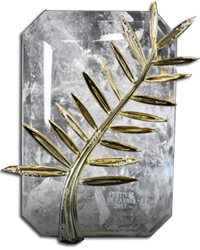
We've reached la fin.
The 70th annual Cannes Film Festival opened 11 days ago and today the jurors and a smattering of the leading lights of this year's edition of the prestigious festival are walking the red carpet one last time in the South of France to name the winners of the Palme d'Or, Best Actress, Camera d'Or (for new directors) and more. If you've fallen behind in Cannes-watching, here's our surely inaccurate predictions to one of the world's most unpredictable awards, the first round of awardage including the Palme Dog, reasons to be excited about the Queer Palme winner and of course a few rounds of fashion (with one massive fashiongasm to follow).
Opening ceremony highlights, Oscar hints, and a winners list after the jump...
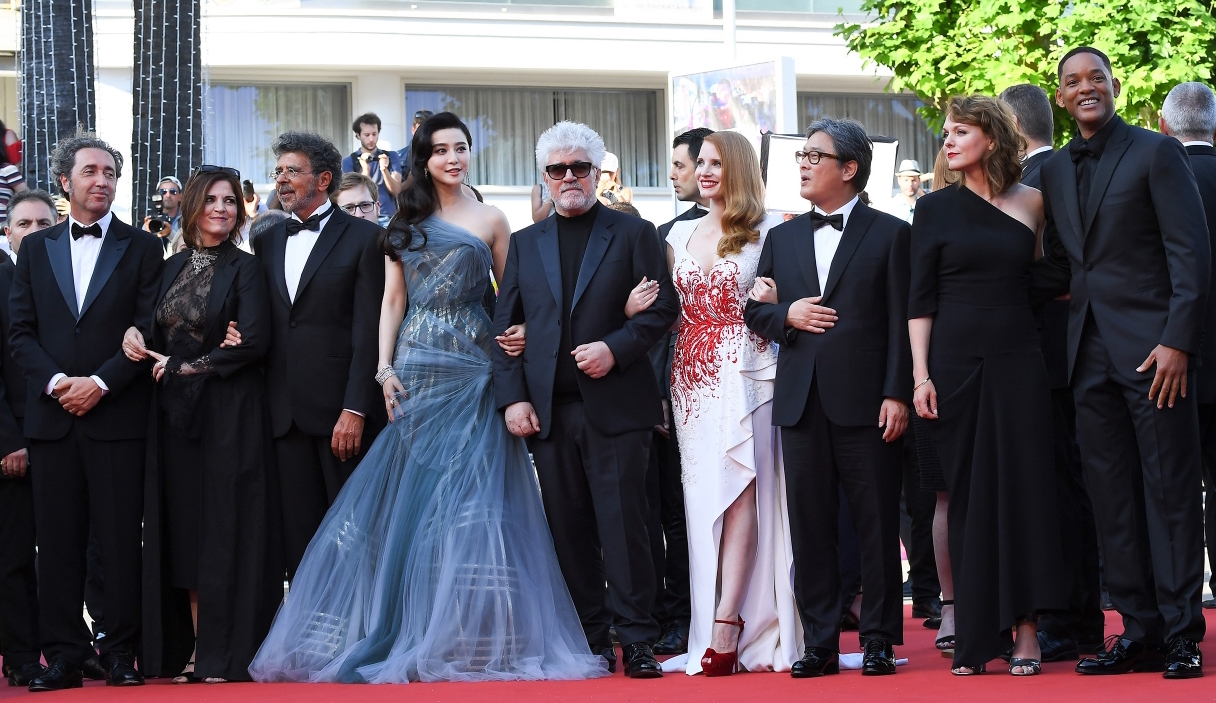 the 2017 jury at the closing ceremonyAWARDS LIST
the 2017 jury at the closing ceremonyAWARDS LIST
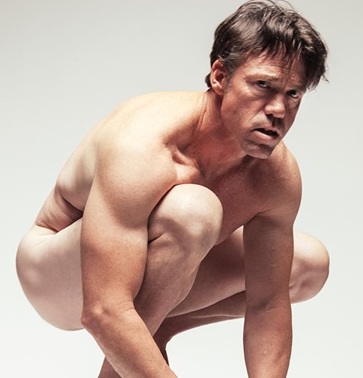 THE SQUAREPalme d'Or: The Square (Sweden) directed by Ruben Östlund
THE SQUAREPalme d'Or: The Square (Sweden) directed by Ruben Östlund
Östlund's last picture Force Majeure was an international success (though Oscar stiffed it at the last minute). His latest has been compared to Toni Erdmann mostly for being an unconventionally long and meandering comedy, this one set inside the art world. Unfortunately, from my understanding, this one is in English so it can't follow Force Majeure into the land of foreign language film nominations and awards.
UPDATE: IMDb (which lists the film's language as English only) and the partially American cast misled us. This film *is* mostly in Swedish and Danish (but for a few scenes with the two English language actors) so will qualify for Foreign Film prizes if Sweden chooses to submit it.
Östlund, who goes big with his emotions (remember his anger at being snubbed by Oscar?) was quite effusive and bouncy when winning, repeatedly blowing kisses to the jury.
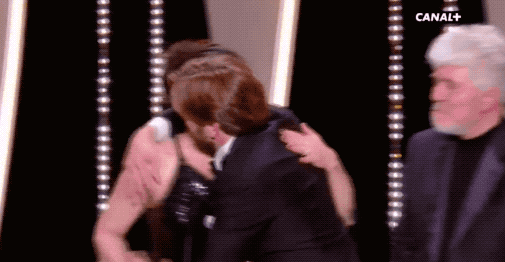 THE SQUARE takes the Palme
THE SQUARE takes the Palme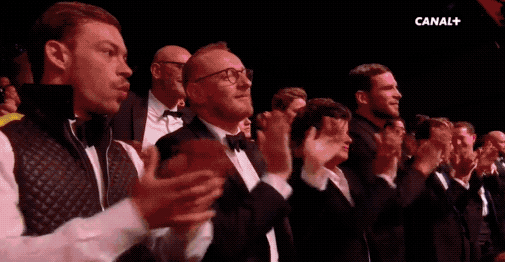 Runner up 120 BPM.
Runner up 120 BPM.
Grand Prix: 120 Battlements Per Minute (France) directed by Robin Campillo
This drama about French AIDS activists in the early 90s is from one of the writers of Palme d'Or winner The Class (2008). The jury's standing ovation was so emphatic for this runner up prize that we're guessing the voting was close. We know it was Almodóvar's favorite due to the press conference but 'it's a democracy' and The Square was the picture that the entire jury loved.
Jury Prize: Loveless (Russia) directed by Andrey Zvyagintsev
His previous dense merciless drama about the cruelties of life in Russia, Leviathan (2014), went all the way from Cannes to an Oscar nomination and a Golden Globe win. Might we expect the same here? Whether or not this drama about the parents of a missing child is as successful remains to be seen but we haven't heard the last of this picture given that it was a critical smash.
Zvyagintsev made some sort of joke in Russian about Will Smith in his acceptance speech which the movie star on the jury with his translation earpiece obviously loved but I watched this on French television so I didn't get the English translation. Anyone know what it was?
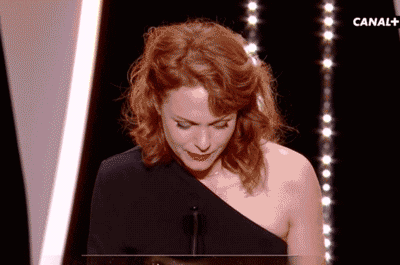 Maren Ade, accepting for Coppola, garbled the speech and interrupted to say "I'm not Sofia Coppola"
Maren Ade, accepting for Coppola, garbled the speech and interrupted to say "I'm not Sofia Coppola"
Director: Sofia Coppola for The Beguiled (US)
Despite what was sometimes regarded as a weak festival for actresses and female roles, it was a great festival for women behind the camera with the Cinefondation top prize, and the competition Best Director both going to female directors as well as Lynne Ramsay's film winning the most prizes from the jury.
The only female BEST DIRECTOR winners at Cannes in its 70 year history. Both started as actresses: Yuliya Solntseva & Sofia Coppola pic.twitter.com/pgylFhK8dl
— Nathaniel Rogers (@nathanielr) May 28, 2017
Of Note: Coppola is only the second woman ever to win this particular prize. We didn't get a second female director Palme d'Or winner this year to join Jane Campion (who won the top prize with The Piano in 1993) but at least we now have a second best director woman! The first was a Russian director Yuliya Solnsteva for The Story of the Flaming Years (1961). Interestingly both Sofia and Yuliya began their film careers as actors. Sofia made about a dozen movie appearances, albeit some as mere cameos, before she made The Virgin Suicides. Yuliya was, most notably, the star of the sci-fi silent classic Aelita Queen of Mars (1924). She didn't act after 1930 but moved into documentary filmmaking in the 1940s and then to narrative films in the 1950s. She died in Moscow in 1989, 10 years after her final feature The World in Three Dimensions (1979).
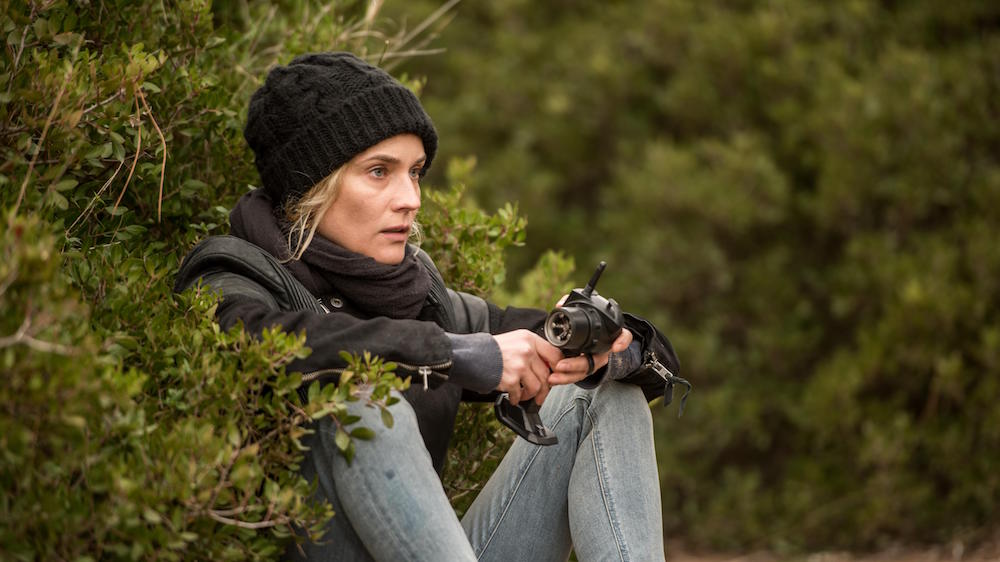
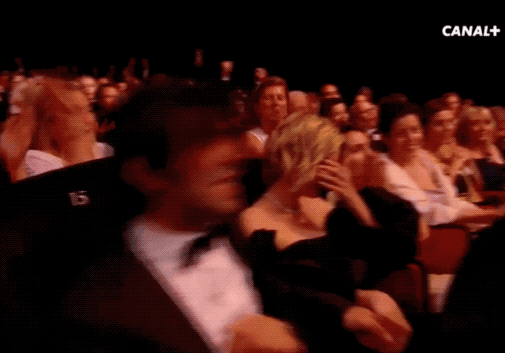
Actress: Diane Kruger for In the Fade (Germany)
She plays a woman who loses her family to a terrorist bombing and seeks revenge. Kruger works in American, French, and German pictures so it's nice to see such major recognition despite her uneven filmography. More actors should really pursue fluency in multiple languages. If one country gives you bum roles (as Hollywood does with Kruger) you can still find good ones elsewhere!
Kruger was obviously quite moved by the honor and director Fatih Akin was freaking out.
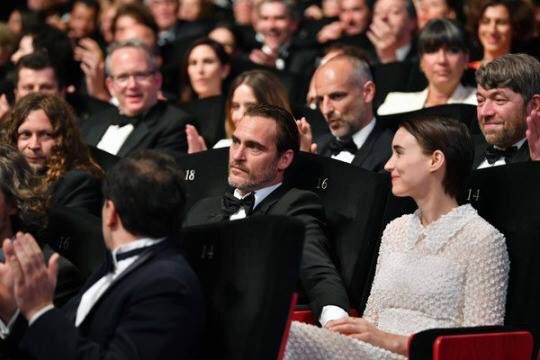
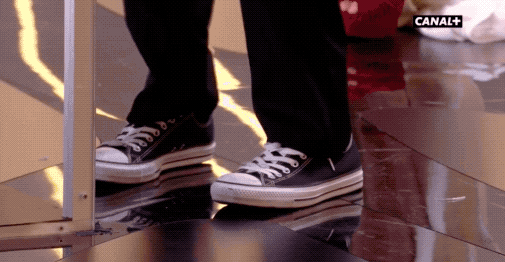
Actor: Joaquin Phoenix for You Were Never Really Here (US)
The actor didn't seem to understand his own name when Pedro Almodóvar said it with that beautiful Spanish accent. He required a tap on the shoulder. Then said "do I have to go up?" Once on stage he apologized for wearing Converse to the awards show but apparently his good shoes had been shipped back home already? Jessica Chastain, who presented, and Joaquin, both forgot his actual prize on the podium so they had to do their photo-op after his speech twice.
For what it's worth: I'm not sure how I missed this or if I merely forgot it but apparently Joaquin and Rooney Mara, co-stars in the forthcoming Mary Magdalene and previously in Her, are an item.
Screenplay: [TIE] The Killing of a Sacred Deer (UK/Ireland) written by Yorgos Lanthimos and Efthimis Filippou and You Were Never Really Here (US) written by Lynne Ramsay
Lanthimos and Filippou are having a great year. Hot off their Oscar nomination for The Lobster and they've won another screenplay prize! Ramsay's sex slavery thriller was expected to win something as the last film to debut and to raves no less. But it won screenplay AND actor, the only film to win two prizes.
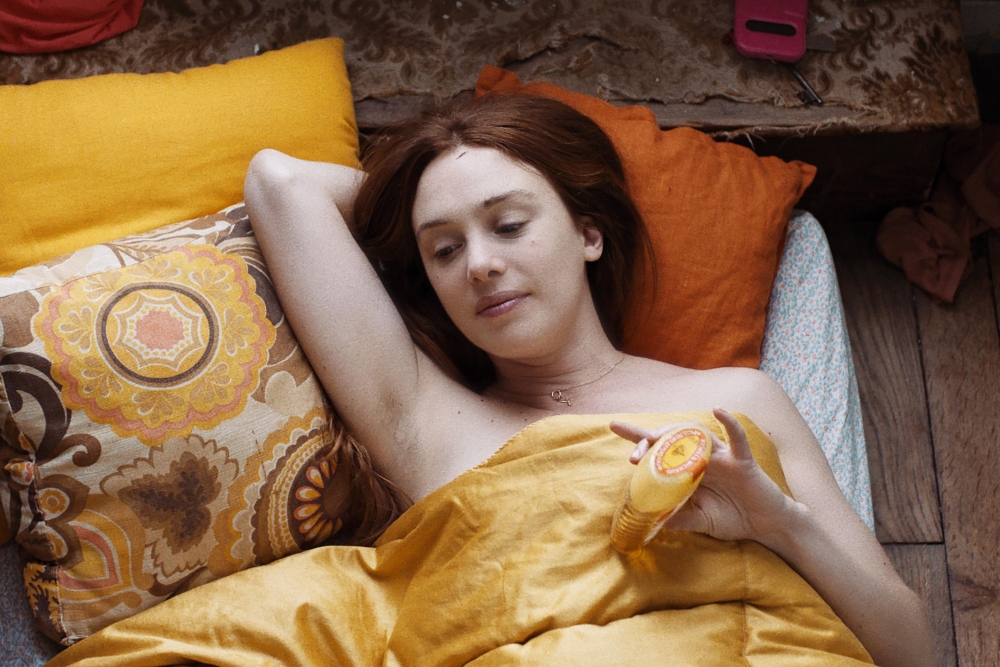 Jeune Femme won the Camera d'Or
Jeune Femme won the Camera d'Or
Camera d'Or: Jeune Femme (France) by Léonor Serraille
This award for a new filmmaker, is traditionally handed out at the closing ceremony even though it has a separate jury than the Competition Lineup. This particular jury is not assigned one sidebar but whichever filmmakers are just starting out within both the competition lineup and outside of it. French actress Sandrine Kiberlain presided over the jury this year and the winner was a female director (yay!) for this very warmly received film about a young girl trying to start over from scratch.
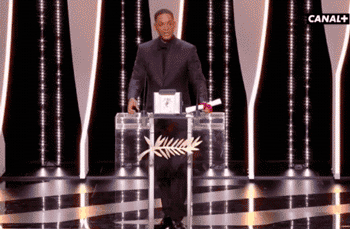
Finally, a special prize!
70th Anniversary Prize: Nicole Kidman for her contributions to cinema
Will Smith presented the award. After revealing that Kidman could not be there to accept he pretended to be her, crying and speaking in bad French. Merci Merci.
But then the Queen herself emerged via a prerecorded tape. I watched French television to see this so Kidman's speech was being translated so I couldn't really hear her. When the video becomes available we'll share it.
ADDITIONAL TAKEAWAYS?
Three much discussed films from the festival, Michael Haneke's Happy End, Todd Haynes's Wonderstruck, and Sergei Loznitsa's A Gentle Creature went home empty-handed. This probably won't be the end of the road for the former two\, awards-wise given the high profiles of those two directors. (At the very least Amazon Studios is expected to push Wonderstruck hard for Oscars and Cannes has a long history of not showing future Oscar contenders with awards when they premiere at Cannes. In other words: It might not mean anything.) The Ukranian director Loznitsa has a lower profile but with several acclaimed features already behind him in both narrative and documentary forms, we'll surely see him again.
Who is the big winner in terms of Oscar play then?
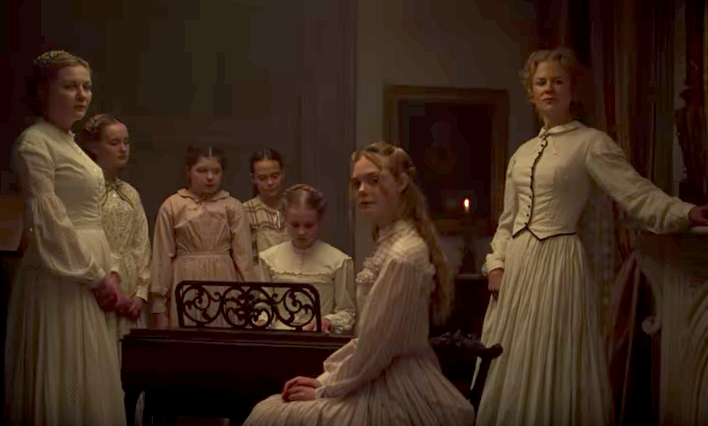
I'd argue it's both The Square and 120 BPM (if their countries submit them as their representative for the Oscar) or The Beguiled. The Cannes stamp for Sofia's Civil War era thriller adds a layer of prestige that that pulpy period female centric film might have had difficulty being taken seriously without, not just because it's girly but also because it's a remake.
You Were Never Really Here might prove too outre for Oscar (they didn't know what to make of Ramsay's other pictures after all and she's never been "mainstream" if you will).
It's tough to know what will happen with In the Fade. Germany, like France, always has a wealth of options for Oscar submissions. But if they do submit it and if it gets a good push from whatever US company eventually distributes it, who knows.